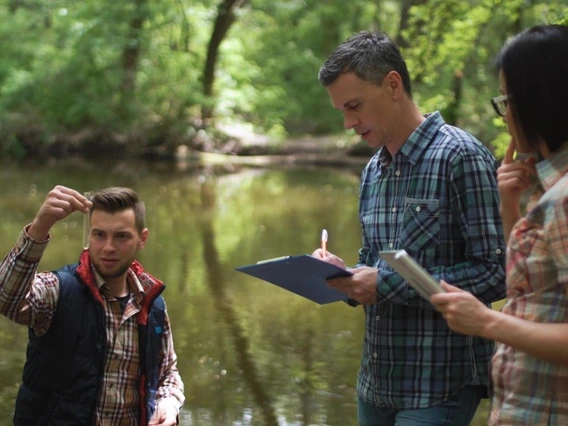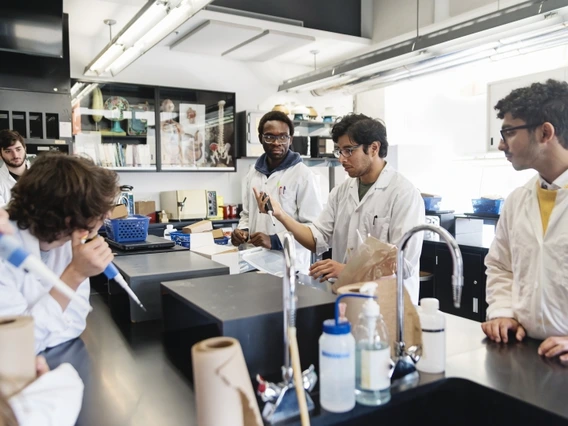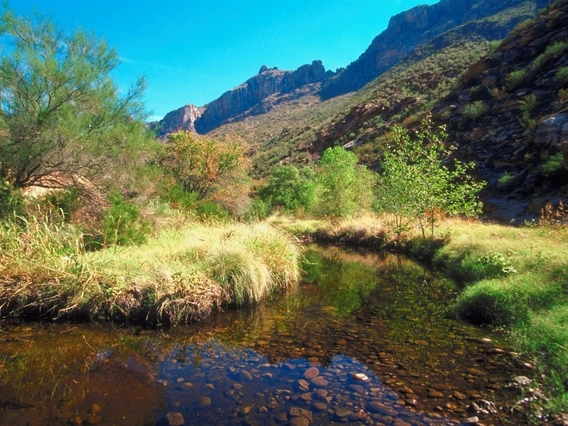Undergraduate Major Programs

Environmental Science
The Biosphere Emphasis
Explore the interactions of microbes, plants, animals, and humans with their physical and chemical environments and learn how to apply biological principles to biodiversity while gaining a broad understanding of habitat conservation, restoration, and rehabilitation. Graduate with the expertise, confidence, and connections to solve environmental and human health challenges.

Fashion Industry's Science and Technology
Modern fashion trends emerge simultaneously and spontaneously across the globe, powered by technology. Build your skill sets in strategic thinking while utilizing science and technology in design and business, art innovation, sustainability research, quantitative thinking, data analysis, and economic management for careers in which fashion meets global business.

Food Studies
Gain knowledge to address pressing social and environmental problems in local and global food systems. An interdisciplinary approach that examines how food is connected to culture, society, policy, and the environment prepares students for careers any number of food-related fields, including education, public policy, entrepreneurship, and community development.

Geography
This interdisciplinary degree combines physical and social sciences; you may focus on specific world landscapes and cultures or on areas such as urban, political, economic or cultural geography, or on human-environment relations. Learn to analyze data and policy in order to address and research critical questions about the world you live in.

Geography
Water, Environment and Society Emphasis
Explore water supply and demand—a critical issue globally and in the Western U.S.—at a the world's No. 1 program in water resources. Courses examine key challenges and train you in the methods to address them, including remote sensing, geographic information science, and field methods, complemented by internships and research opportunities at renowned facilities and organizations.

Medicine
Medicine and Society Emphasis
Explore a variety of topics in courses taught by practicing physicians and medical scientists including what it is to be a healthcare professional; medical ethics; professionalism; health care delivery to improve quality care; advanced anatomical, biochemical, neurological, and physiological science; pathology of disease; mechanisms of treatment; and integrative therapies.

Mining Engineering
Sustainable Resource Dev Track
Prepare to be an engineer who mitigates environmental effects of mining, monitors mine sites for pollution and health hazards, develops health and safety protocols, and helps Indigenous communities develop natural resources through coursework in environmental science, economics, community development, public health, and environmental remediation. A minor in environmental science or public health is encouraged.

Molecular and Cellular Biology
Education and Communication Emphasis
Prepare for career in teaching, journalism, or research writing that includes your passion for biology. Become proficient in chemistry, math, physics, ecology, and biology and complete courses in science learning and journalism to grasp methods of imparting key evidence-based data, analysis, and findings to the general public.

Natural Resources
Ecology, Management and Restoration of Rangelands Emphasis
Rise to the challenge of sustainably repairing and responsibly managing ecological systems with this degree, which focuses on resource management and restoration by building a strong foundation in the biological, physical, ecological and botanical sciences and field courses, internships, lab work, and opportunities to join research and restoration projects.

Public Health
Environmental and Occupational Health Emphasis
Focus on environmental justice, public health preparedness, industrial impact, sanitation, and safety fundamentals and complement your coursework with an internship that provides professional public health experience. If you're interested in environmental health, protection of natural resources, and safety for workers and communities, consider this major.
Pagination
- First page
- …
- 1
- 2
- 3
- …
- Last page
Environmental Themes
Career Fields












